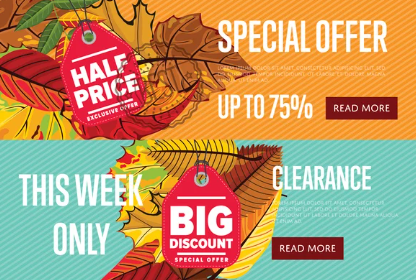Flash sales have become a staple of online shopping, offering consumers the opportunity to purchase products at deeply discounted prices for a limited time. These time-sensitive deals can create a sense of urgency that often results in impulsive buying behavior. But what is it about flash sales that makes them so irresistible to shoppers? The answer lies in the psychology behind these high-pressure sales events, which tap into several key emotional and cognitive triggers. Let’s explore why shoppers can’t seem to resist the allure of flash sales.
The Power of Scarcity and Urgency
One of the most significant psychological triggers at play during a flash sale is the concept of scarcity. When shoppers see a limited-time offer or a countdown clock ticking down, it creates the perception that the product is in limited supply or that the deal is fleeting. This scarcity principle, backed by psychological theories such as reactance and loss aversion, compels people to act quickly for fear of missing out (FOMO).
Studies have shown that the fear of losing an opportunity is often stronger than the desire to gain something. Flash sales exploit this by making consumers feel as though they are about to miss out on a good deal, prompting them to make hasty decisions. This sense of urgency, combined with the fleeting nature of the offer, leads to impulsive purchases that shoppers might not have made otherwise.
The Excitement of a Deal
Another key psychological factor at work in flash sales is the concept of reward anticipation. Humans are naturally wired to seek rewards, and the prospect of getting something for a fraction of its usual price creates a rush of excitement. This release of dopamine—the brain’s “feel-good” chemical—reinforces the behavior, making the shopper feel as though they are achieving something valuable. For many, getting a “good deal” becomes a form of instant gratification that outweighs the usual rational shopping process.
This emotional satisfaction is heightened when the shopper believes they are getting something they want at an exceptional price. The excitement of saving money on a desirable product amplifies the positive emotions associated with the purchase, even if the item wasn’t originally on the shopper’s radar.
Social Proof and Herd Mentality
Flash sales often incorporate social proof elements, such as displaying how many people have already purchased the product or showing how many items are left in stock. These cues trigger the herd mentality, where consumers are influenced by the actions of others. The idea that others are buying or showing interest in a product makes the item seem more desirable, creating a sense of community participation.
In fact, the visibility of other buyers can make people feel more confident in their own decision to purchase. Flash sales often tap into this desire to be part of a “special group” or to act before the opportunity passes, reinforcing the impulsive nature of the sale.
Cognitive Biases and Mental Shortcuts
Flash sales also take advantage of several cognitive biases that shape decision-making. One of the most prominent is the anchoring effect, where shoppers are more likely to perceive a discount as valuable when it’s compared to the original price. For example, if a jacket is originally priced at $150 and is marked down to $50 for the flash sale, the significant reduction creates the illusion of getting a great deal, even if the product is still priced higher than similar items elsewhere.
Additionally, flash sales often encourage consumers to make purchases based on the availability heuristic—a mental shortcut that relies on immediate examples that come to mind. When shoppers see the countdown clock ticking or the phrase “only a few left,” they’re more likely to believe that the item is a rare find, even if that may not be the case.
The Role of Customization and Personalization
In recent years, many retailers have incorporated personalization into flash sales, tailoring deals based on shoppers’ past behaviors or preferences. This customization increases the appeal of the sale by making it feel exclusive to the individual. Personalized recommendations during a flash sale make shoppers feel as though the offer is specifically designed for them, which can further drive the desire to act quickly.

Flash sales have become a dominant force in the online shopping world, and their appeal can be largely attributed to the psychological factors at play. The combination of scarcity, urgency, reward anticipation, social proof, cognitive biases, and personalization creates an irresistible formula that triggers impulsive buying behavior. As consumers, we are naturally drawn to the excitement of getting a great deal, and flash sales capitalize on this urge, often leading us to make purchases we hadn’t planned for. Understanding the psychology behind these sales events can help shoppers make more informed decisions, rather than succumbing to the rush of a time-limited deal. Ultimately, the thrill of saving money, combined with the fear of missing out, continues to make flash sales one of the most effective marketing tools in today’s consumer-driven marketplace.
